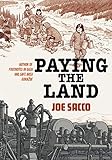Scheduling constraints mean this year’s list is going to come out in stages, with the overall top at the end. It was a very busy year for me, focusing on my forthcoming book Meganets. Of the literature, Ottessa Moshfegh, Yiyun Li, and Alta Ifland all came in with very, very strong new novels, and Percival Everett and John Crowley were reliably excellent. Moshfegh’s is probably her best to date. I have not finished Goytisolo’s Antagony, but it’s too major not to list.
Lapvona: A Novel
Moshfegh, Ottessa (Author)
Penguin Press
Flint and Mirror
Crowley, John (Author)
Tor Books
The Book of Goose: A Novel
Li, Yiyun (Author)
Farrar, Straus and Giroux
Speaking to No. 4
Ifland, Alta (Author)
New Europe Books
Dr. No: A Novel
Everett, Percival (Author)
Graywolf Press
A Very Old Man: Stories (New York Review Books Classics)
Svevo, Italo (Author), Randall, Frederika (Translator), Rich, Nathaniel (Introduction)
NYRB Classics
Peter the Great's African: Experiments in Prose (New York Review Books Classics)
Pushkin, Alexander (Author), Chandler, Robert (Editor), Chandler, Robert (Translator), Dralyuk, Boris (Translator), Chandler, Elizabeth (Translator)
NYRB Classics
The Book of Charlatans (Library of Arabic Literature, 82)
al-Jawbarī (Author)
NYU Press
After (NYRB Poets)
Narayanan, Vivek (Author)
NYRB Poets
The Best of Lucius Shepard, Vol. 2
Shepard, Lucius (Author)
Subterranean Press
Antagony (Spanish Literature)
Goytisolo, Luis (Author), Riley, Brendan (Translator)
Dalkey Archive Press
Memories of Starobielsk: Essays Between Art and History (New York Review Books Classics)
Czapski, Jozef (Author), Valles, Alissa (Translator), Gross, Irena Grudzinska (Introduction)
NYRB Classics
Blind Owl
Hedayat, Sadeq (Author), Tabatabai, Sassan (Translator), Tabatabai, Sassan (Introduction)
Penguin Classics
Late Fragments: Flares, My Heart Laid Bare, Prose Poems, Belgium Disrobed (The Margellos World Republic of Letters)
Baudelaire, Charles (Author), Sieburth, Richard (Translator)
Yale University Press
Telluria (New York Review Books)
Sorokin, Vladimir (Author), Lawton, Max (Translator)
NYRB Classics
Their Four Hearts (Russian Literature)
Sorokin, Vladimir (Author), Klassen, Gregory (Illustrator), Lawton, Max (Translator)
Dalkey Archive Press
Spadework for a Palace (Storybook ND Series)
Krasznahorkai, László (Author), Batki, John (Translator)
New Directions
A Mountain to the North, a Lake to the South, Paths to the West, a River to the East
Krasznahorkai, László (Author), Mulzet, Ottilie (Translator)
New Directions
Homeward from Heaven (Russian Library)
Poplavsky, Boris (Author), Karetnyk, Bryan (Translator)
Columbia University Press
The Cambridge Centenary Ulysses: The 1922 Text with Essays and Notes
Joyce, James (Author), Flynn, Catherine (Author)
Cambridge University Press
The Poems (The Swiss List)
Walser, Robert (Author), Pantano, Daniele (Translator), Pantano, Daniele (Afterword)
Seagull Books
















































































































































































































